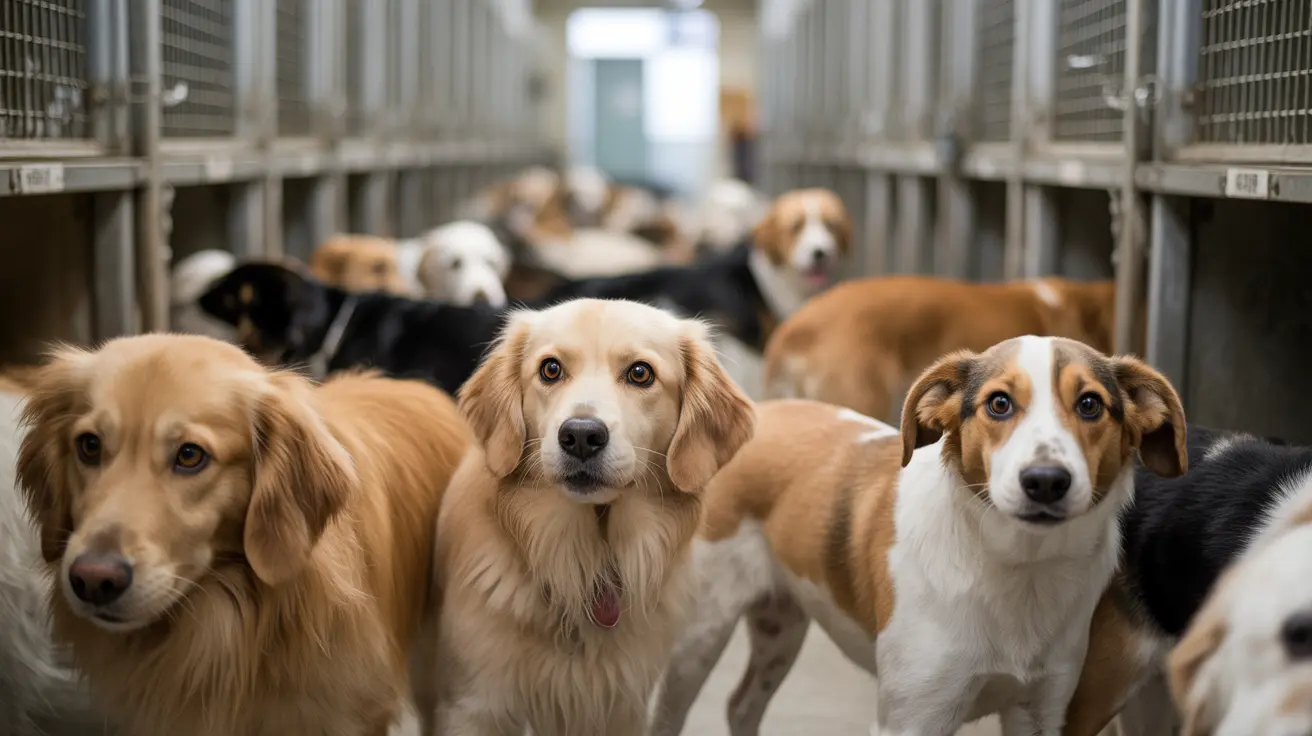The overcrowding in animal shelters across Wisconsin has reached a critical point following a massive rescue operation in Juneau County. Nearly 400 animals were rescued over the weekend after authorities arrested two individuals at a rural property, pushing local shelters to their absolute limits.
This large-scale rescue operation highlights the growing crisis facing Wisconsin's animal welfare organizations, which were already struggling with capacity issues. The sudden influx of hundreds of animals has created an urgent need for community support and assistance.
Impact on Local Animal Welfare Organizations
The rescue has significantly impacted Wisconsin's shelter system, which was already dealing with existing overcrowding challenges. Local organizations are now coordinating efforts to provide care and shelter for these rescued animals while managing their current populations.
Current Shelter Capacity Crisis
Multiple shelters across the state are working together to handle this unprecedented situation. The Wisconsin Humane Society and other local organizations are mobilizing resources to ensure proper care for all animals involved, though space and resources are stretched thin.
How Communities Can Help
Fostering Pets in Wisconsin
One of the most immediate ways to help is through fostering. Temporary foster homes can provide crucial relief to overcrowded shelters, allowing them to care for more animals in need. Foster families provide:
- Temporary housing for animals
- Socialization opportunities
- Individual attention and care
- Space relief for shelters
Adopting Pets from Shelters
Adoption remains the most effective long-term solution to shelter overcrowding. When considering adding a pet to your family, choosing to adopt from a shelter:
- Saves a life
- Creates space for another animal in need
- Supports local animal welfare organizations
- Often costs less than purchasing from other sources
Support Programs and Resources
The BISSELL Pet Foundation's Empty the Shelters program and other initiatives are working to address the current crisis. These programs often offer reduced adoption fees and additional support to help connect animals with loving homes.
Economic Impact on Pet Ownership
The current situation reflects broader challenges in pet ownership, including:
- Rising costs of veterinary care
- Economic pressures on families
- Housing restrictions
- Limited access to pet-friendly housing
Animal Welfare Laws in Wisconsin
Wisconsin maintains strict regulations regarding animal care and welfare. The recent rescue operation demonstrates the enforcement of these laws to protect animals from neglect and unsafe conditions. Shelters must comply with specific standards while managing their populations humanely.
Frequently Asked Questions
What is causing the recent surge in pet surrenders across Wisconsin?
The recent increase in pet surrenders is largely attributed to financial constraints and the high cost of veterinary care, leading to economic instability that forces owners to give up their pets.
How can I help alleviate overcrowding in local animal shelters?
You can help by adopting pets, fostering animals temporarily, donating supplies or money, and volunteering at shelters to support animal care.
What happens to animals rescued from large-scale operations like the Juneau County event?
Animals rescued from such operations are taken in by shelters and humane societies, where they receive medical care and are assessed for adoption or further rescue actions.
Moving Forward
This unprecedented situation in Wisconsin's animal welfare community calls for continued support and engagement from local residents. Whether through adoption, fostering, or other forms of assistance, every contribution helps address the current overcrowding crisis and supports the well-being of animals in need.
The commitment of local organizations and community members working together demonstrates the strength of Wisconsin's animal welfare network, even in challenging times. For those interested in helping, reaching out to local shelters is the first step toward making a difference in these animals' lives.






